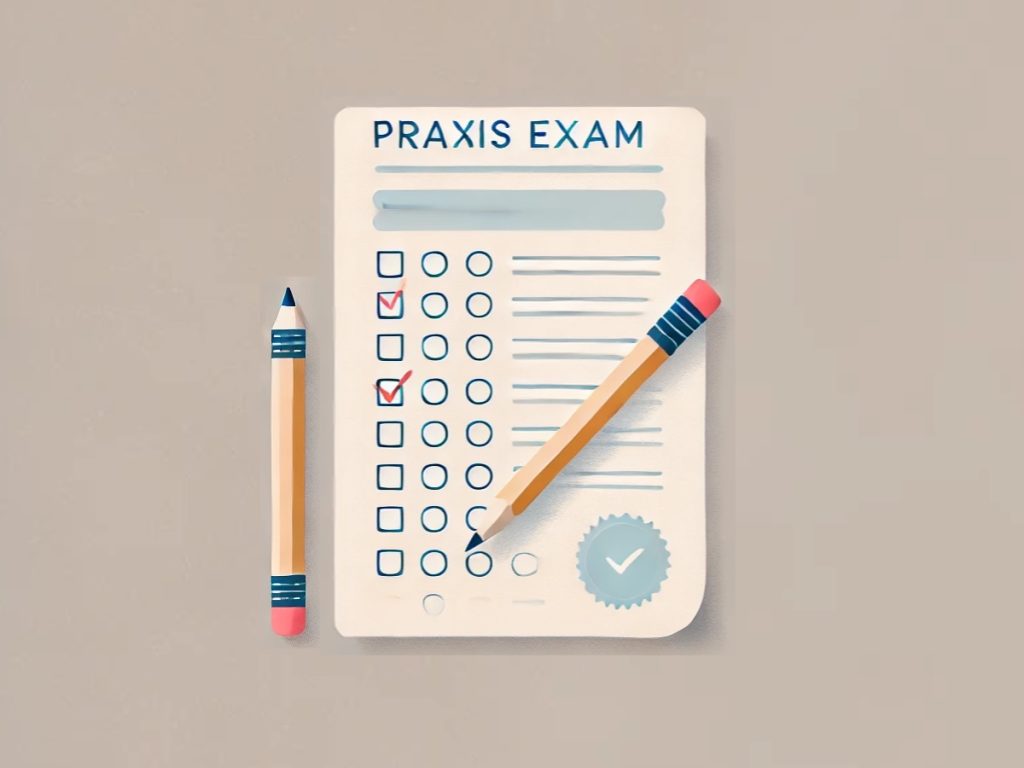How to Become a Pediatric Speech Pathologist
Pediatric Speech Pathologists (SLPs) work assisting children with their communication and swallowing problems. These professionals evaluate and treat speech and language disorders, social communication problems, and feeding/swallowing difficulties in children from infancy through teenage years. On any given day, a pediatric SLP could be found assisting a preschooler who stutters, a child with autism who needs help communicating, or an infant who faces difficulties with feeding. These experts enhance children’s speech and language capabilities as well as their self-assurance when interacting with others.
The work environment of pediatric speech-language pathologists extends across multiple settings. Speech or language impaired students receive help from pediatric speech pathologists who work in educational facilities that range from preschool to K-12 levels. The U.S. Bureau of Labor Statistics reports that educational services employ about 40% of all SLPs. Pediatric speech language pathologists practice their profession in children’s hospitals as well as rehabilitation clinics and private therapy practices and early intervention programs.
The objective remains the same in both elementary school settings and pediatric medical facilities since they assist children to develop proper communication skills. The combination of difficulty and satisfaction makes this work highly fulfilling because pediatric SLPs get to witness nonverbal children learn their first words and help fearful kids join class activities.
Step 1 – Earn a Speech Language Pathology Bachelor’s Degree
Your path to becoming a pediatric speech pathologist begins with obtaining a bachelor’s degree in speech pathology. The acceptance of various undergraduate backgrounds by some graduate SLP programs exists but selecting a related major provides students with a solid foundation. Students who pursue Communication Sciences and Disorders (CSD) major receive introductory education in speech and hearing science. The path to becoming a professional speech pathologist is accessible through various undergraduate majors. Select an undergraduate major that aligns with your professional objectives such as communication sciences and disorders, psychology, education, linguistics, English or language development. These academic fields develop knowledge about human development and communication which becomes essential for future pediatric therapy practice.
Regardless of the major you select, you’ll need to make sure you complete certain prerequisite courses before entering a master’s program in speech-language pathology. SLP graduate programs typically require coursework in the following areas:
- Biological Science: e.g. general biology or human anatomy
- Physical Science: a physics or chemistry course (ASHA requires one of these)
- Statistics: a college-level statistics course
- Social/Behavioral Science: e.g. psychology, sociology, or human development
If you have already graduated with a bachelor’s degree in an unrelated field and haven’t taken these prerequisite courses, you can still become a pediatric speech-language pathologist. You will still need to take the courses, but some speech pathology master’s degree programs are tailored to individuals like you. Look for master’s programs with a post-bachelor’s “leveling” program. This will help you get the courses you need to be prepared for your master’s degree in speech-language pathology.
Your time at university should include both academic studies and practical experience in child-focused or clinical environments. Look for opportunities to volunteer or intern in positions that let you experience the pediatric field first-hand. Look for opportunities volunteering at a preschool for children with special needs and helping out at a university speech and hearing clinic and observing a licensed SLP at a hospital or private practice. The combination of practical experience will help you validate your interest in pediatric speech pathology and improve your chances of getting accepted into graduate school. Through these opportunities you will get to watch therapy sessions while learning how clinicians connect with young clients and their families.
Step 2 – Complete a Master’s Degree in Speech-Language Pathology
The next step on the path to becoming a SLP is completion of a speech-language pathology master’s degree at a CAA-accredited institution. Students in these two-year programs receive academic instruction with clinical training that prepares them to work with people of all ages but they receive extensive training in pediatric care.
Search for graduate programs that provide pediatric-specific training along with clinical placement opportunities. Students typically take classes about child language disorders as well as speech sound development and early intervention and autism spectrum disorders and pediatric dysphagia (swallowing disorders). These courses establish the foundation for treating children who experience communication difficulties.
Some examples of graduate programs that offer pediatric specific curriculum or clinical experiences are: the University of Texas at Dallas, which requires that students complete 1 pediatric core practicum during their first 3 semesters. UTD also offers multiple pediatric focused courses for students to take. University of Washington offers a Master of Science in Speech-Language Pathology with an education track that emphasizes working with pediatric populations in school settings. The University of Miami has a Pediatric Speech-Language Pathology Training Program where trainees engage in clinical rotations at the Mailman Center for Child Development and the Debbie School, focusing on the communication needs of infants, toddlers, and school-aged children. George Washington University Master of Arts in SLP includes specialty track in Pediatric Speech and Language Disorders.
Students can enroll in programs that take place either on campus or through distance learning. Online programs require students to complete their clinical placements through in-person work so you should confirm their ability to provide pediatric externships near your location. Your master’s program at any format will create your expertise while starting your career as a pediatric speech pathologist.
Step 3 – Gain Supervised Speech Pathology Clinical Experience
Your graduate studies will require you to perform at least 400 hours of clinical experience under supervision. Students must complete 25 observation hours together with 375 direct client contact hours. These essential clinical hours will help you develop practical skills while preparing you for professional practice.
Pediatric-focused students should choose placement sites that allow them to work with different types of children. This crucial training for students becomes even more valuable through placements at university clinics and public schools and pediatric therapy centers and children’s hospitals. The different environments provide students with unique skill development opportunities through their work with IEPs in schools and their management of complex feeding issues in medical settings.
Under the supervision of qualified professionals you will perform evaluations and create treatment plans and deliver therapy sessions while working with families. You will develop your skills to work with young clients through this experience by learning to adapt techniques to their developmental levels and handling actual practice situations.
The clinical experience serves as both a graduation requirement and your professional development space. Through your practicum experience you will develop the ability to provide support to children who have different communication requirements.
Step 4 – Pass the Praxis Exam in Speech-Language Pathology
Your career advancement depends on passing the Praxis speech-language pathology exam. The national examination tests your readiness to practice and serves as the requirement for obtaining certification and licensure.
The Praxis exam includes extensive content about assessment and diagnosis and treatment of patients at all ages but pediatric topics make up a significant portion. The exam will test your knowledge about language development alongside articulation disorders and early intervention strategies and working with children who have disabilities or complex communication needs.
Your preparation should include reviewing course materials and practice exams and using the ETS Praxis Study Companion as a study guide. Study groups together with flashcards serve to strengthen important concepts in your memory.
The minimum score required to pass the ASHA certification exam is 162. The same benchmark of 162 serves as the passing score for both licensure and certification in many states. After passing the exam you will qualify to start your clinical fellowship which leads you toward achieving independent practice status.
Step 5 – Complete a Clinical Fellowship (CF) Year
During your Clinical Fellowship (CF) period you will move from student to professional status. You will work under an experienced speech-language pathologist’s supervision for at least 36 weeks (1,260 hours) to obtain real-world experience. The mentorship requires an ASHA-certified supervisor who has received approval to oversee CFs. Pediatric SLPs should seek CF positions in schools and pediatric outpatient clinics and children’s hospitals. Your experience with age-related disorders and treatment methods will expand through working in these settings.
Your CF experience will help you develop therapy skills while you learn to handle client responsibilities and gain self-assurance when working with families and interdisciplinary teams. The mentor will watch your sessions then give feedback and assess your development.
This position comes with payment and usually represents your initial full-time employment. The program allows you to develop your professional identity under professional guidance. After finishing your CF program successfully, you will be qualified to pursue full certification and licensure.
Step 6 – Obtain SLP Licensure & ASHA Certification
Your completion of a master’s degree, passing Praxis score and completed fellowship makes you eligible to become fully credentialed. Your first step should be to obtain state licensure in the location where you want to work. State requirements for licensure differ but typically demand documentation of education along with Praxis scores, CF documentation and a background check.
You should consider submitting an application for the Certificate of Clinical Competence in Speech-Language Pathology (CCC-SLP) through ASHA after your application. The national certification shows your achievement of strict standards and enables you to work in various positions including some educational facilities and hospitals. The CCC-SLP certification is not mandatory for licensure across all states but it simplifies the licensure process when you relocate to another state. State licensure and ASHA certification remain essential for pediatric SLPs to maintain throughout their professional careers.
Optional – Pursue a Speech Pathology Doctorate Degree or Specialization
Some pediatric speech-language pathologists (SLPs) obtain advanced degrees and specialty credentials to increase their professional expertise and career prospects although it remains optional.
The Doctor of Speech-Language Pathology (SLP-D) program concentrates on clinical leadership. The SLP-D program at Rocky Mountain University of Health Professions provides students two distinct tracks focused on pediatric practice and advanced clinical teaching. The PhD in Communication Sciences and Disorders at Northwestern University serves students who wish to conduct research about pediatric language development or become university instructors.
The BCS-CL (Board Certified Specialist in Child Language) certification from the American Board of Child Language and Language Disorders (ABCLLD) serves as a clinical specialization for professionals. The certification process for this credential demands pediatric practice experience along with ongoing education and submission of a peer-reviewed application. The certification targets speech-language pathologists who possess advanced skills in language-based disorders affecting children.
Specialized post-master’s training programs exist within various institutions. Utah State University operates a Listening and Spoken Language Emphasis program which serves speech-language pathologists who work with deaf or hard-of-hearing children. The school-based SLP specialty at Vanderbilt University provides advanced pediatric training to its students.
There are various states whose universities do not currently offer speech pathology doctorate degrees. If you wish to pursue a doctorate degree but find that no courses are available within your state, you may be able to continue your education online. Many states offer online programs for speech pathologists both at the undergrad and graduate levels. Some of these may still require on-campus labs, or periodic visits to the campus, so it is important to understand the full scope of the program’s criteria before you commit.
Pediatric Speech-Language Pathology Salary: How Much Can I Earn?
Speech Pathologists receive good compensation and pediatric specialists continue to have a consistent demand for their services. The Bureau of Labor Statistics reports that Speech-Language Pathologists earned a median annual wage of $89,290 during 2023. New graduates begin their careers at lower levels yet their earnings grow substantially after gaining experience and developing specialized skills. Speech-Language Pathologists working in hospitals or private clinics receive higher compensation than their counterparts in educational settings. School-based positions provide SLPs with desirable working conditions including summer breaks and excellent benefits packages which make them appealing to pediatric speech pathologists.
Higher salaries exist in urban and coastal regions yet residents need to consider their local cost of living expenses. Bilingual Speech-Language Pathologists together with those holding advanced certifications receive higher compensation. The most fulfilling aspect of working with pediatric patients according to many Speech-Language Pathologists is watching children reach their milestones such as their first words or forming friendships or going back to school after illness.
Top Paying States for Pediatric SLP
| State | Annual Salary | ||
|---|---|---|---|
| Washington | $105,303 | ||
| Washington D.C | $105,064 | ||
| New York | $101,718 | ||
| Massachusetts | $101,540 | ||
| Alaska | $100,129 | ||
*According to ZipRecruiter
Pediatric SLP Salary Distribution
| 25th Percentile | $72,500 | ||
| 50th Percentile | $92,975 | ||
| 75th Percentile | $111,500 | ||
| 90th Percentile | $130,500 | ||
*According to ZipRecruiter
Pediatric Speech-Language Pathology Job Market
The job market for pediatric SLPs demonstrates a positive growth trend. The employment of speech-language pathologists shows a projected 18% increase from 2023 to 2033 which exceeds average growth rates.
Multiple factors drive the increasing need for this profession. The growing understanding of speech and language disorders leads to earlier medical interventions. The number of children getting referred for therapy has increased particularly in educational institutions and early childhood facilities. The increasing number of autism and developmental delay diagnoses drives the demand for pediatric specialists.
School districts operating in rural or underserved areas frequently experience difficulties in finding SLP professionals. Pediatric clinics together with hospitals continue their service expansion. Telepractice has created new possibilities for speech-language pathologists to provide services to families through remote connections particularly in areas without available local providers.
The field of pediatric speech-language pathology offers both stability and the ability to create meaningful improvements in child development while providing flexible work environments.
Related Articles

Speech Pathologist vs Speech Therapist: What’s the Difference?
If you have ever been researching speech-language pathology careers and come across the words ‘speech pathologist’ and ‘speech therapist’, you might wonder if they are

What is the Speech-Language Pathology Interstate Compact?
If you are interested in pursuing a career in SLP and have been researching licensing requirements or are simply interested in learning more about SLP

What is the Praxis Exam for Speech Language Pathology?
If you are pursuing the position of a speech-language pathologist, then you may have heard of the Praxis exam from your professors, classmates, or even
